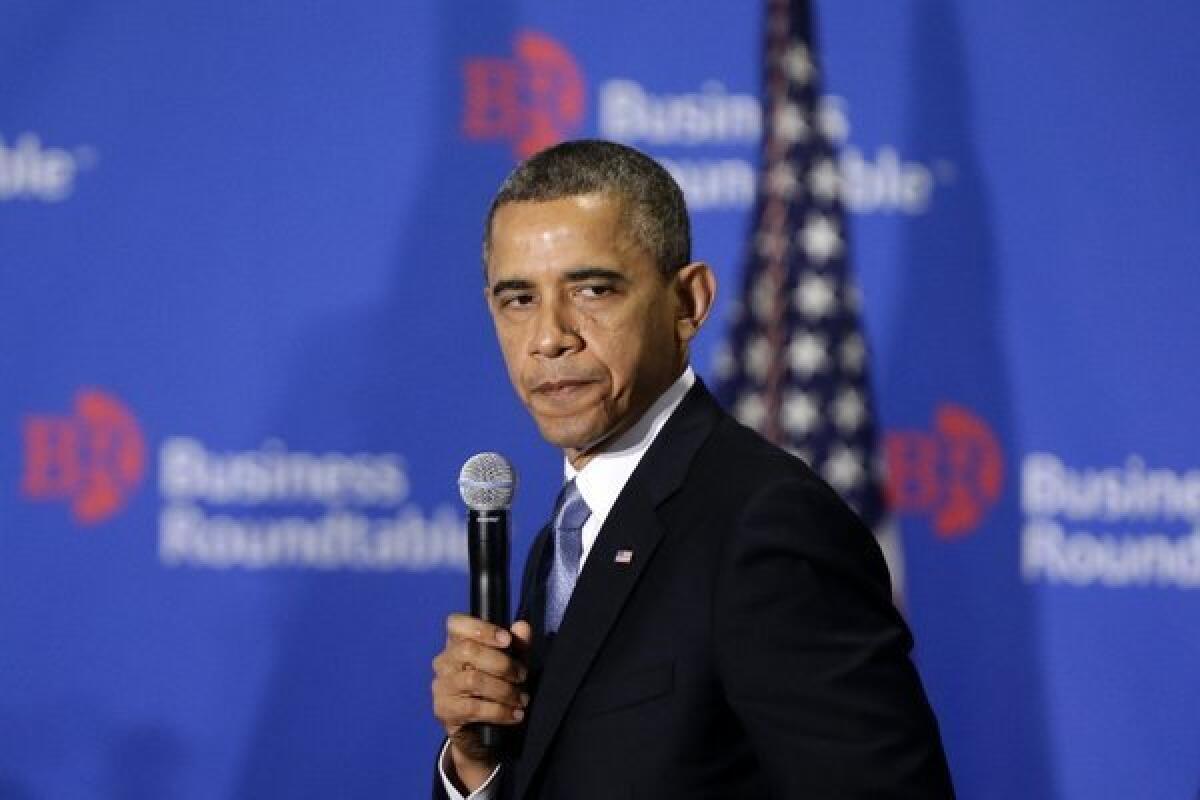Lift the debt ceiling, permanently

Republicans scoffed when President Obama demanded the power to raise the debt ceiling unilaterally in his first formal “fiscal cliff” offer to the GOP. And at first, I thought he was just staking out an extreme position for negotiating purposes. But Obama said again in the days that followed that he wasn’t kidding: He wants the debt ceiling lifted unconditionally.
He’s right. Washington’s finances need fixing, but the debt ceiling is the wrong tool for the job. Worse, it’s irresponsible fiscal policy. It needs to go.
Many right-of-center readers are probably skipping straight to the comments field now to brand me a spend-happy liberal enthralled with my Marxist “messiah.” Actually, I’ve been a deficit hawk ever since President Reagan started pushing the red ink into previously uncharted territory. But being fiscally responsible means not just limiting the government’s borrowing but also paying its bills.
And that’s the fundamental problem with the statutory limit on borrowing. It doesn’t stop Congress from adopting budgets that spend more than they raise in taxes, enacting appropriations bills that rely on borrowed money or continuing (or creating) entitlement programs whose costs rise faster than federal revenue. It simply says that after lawmakers have done any or all of those things, the Treasury Department will eventually run out of money to pay for them, at which point the administration will decide which creditors to pay and which ones to stiff.
That’s a bit like a drunk trying to control his drinking problem by deciding not to pay his bar tab rather than going into rehab.
Supporters of the statute say it’s the last line of defense against runaway spending and, in Obama’s case, a tax-and-spend president. Not to quibble, but the president doesn’t hold the federal government’s purse strings. The Founding Fathers placed all the power over taxes, appropriations and entitlements squarely in the hands of Congress. The executive branch can’t spend a dime that Congress doesn’t appropriate.
The only place the president has real power is in maintaining the status quo on entitlements. By wielding his veto pen, he can block any change that doesn’t have the support of two-thirds of each house of Congress.
To anyone with little or no faith in Washington’s willingness to tame the growth in Medicare, the debt ceiling might seem like a badly needed fail-safe against runaway entitlements. That would be true if refusing to lift the debt ceiling caused less damage than letting benefit programs continue to grow on autopilot. And as significant a problem as Medicare (and to a lesser extent, Medicaid) may prove to be eventually, defaulting on U.S. debts would inflict a much larger and more immediate toll on the economy. At the very least, a default would drive up U.S. borrowing costs, which would only exacerbate the government’s fiscal problems.
And please don’t argue that the feds can survive just fine without borrowing any more money. Washington collects an enormous amount from taxpayers every month, that’s true. But as long as the budget isn’t balanced, there isn’t enough coming in to cover all the commitments Congress has made. The Treasury Department may have enough to pay its bondholders but not to cover all of the checks due to Social Security recipients, highway contractors, Marines, bank regulators, food safety inspectors -- you get the idea. In other words, the government doesn’t have to default on its bonds to weaken the financial markets’ confidence and downgrade the U.S. credit rating. Standard & Poor’s and Moody’s have made that clear already.
The reality is, Congress has plenty of mechanisms to limit spending that don’t involve threatening bondholders or Social Security recipients. The appropriations bills in particular give lawmakers tremendous leverage over the White House, which, as noted above, can’t operate the executive branch unless Congress provides a fresh allotment of dollars annually.
It takes a great deal of courage to use that leverage. Withholding appropriations to force the president to make concessions on spending raises the very real possibility of shutting down a portion of the federal government, and the public reacts badly to such things. But the public relations problem caused by that sort of brinkmanship is small potatoes compared to the real economic damage inflicted by playing chicken over the debt ceiling.
That’s why we shouldn’t give Congress the power to refuse to pay the bills Congress itself runs up. It’s worth noting that some of the most vocal proponents of holding the debt ceiling hostage to more spending cuts are the same ones who voted for Republican budget resolutions in 2011 and this year that called for trillions of dollars in new deficit spending. Lawmakers who don’t want to borrow more money should stop voting for resolutions and bills that rely on borrowed money.
ALSO:
Gay marriage: Scalia knew this day would come
Obama’s ‘balanced’ approach hits a Democratic wall
Follow Jon Healey on Twitter @jcahealey
More to Read
A cure for the common opinion
Get thought-provoking perspectives with our weekly newsletter.
You may occasionally receive promotional content from the Los Angeles Times.











